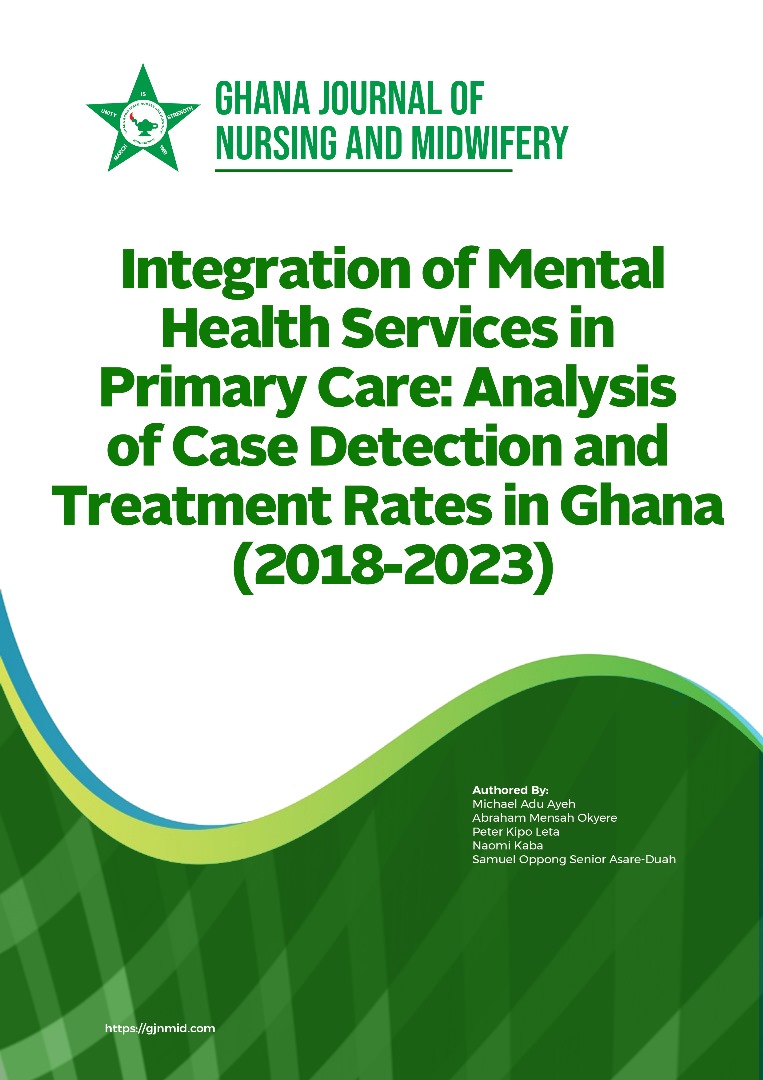Integration of Mental Health Services in Primary Care: Analysis of Case Detection and Treatment Rates in Ghana (2018-2023)
Main Article Content
Abstract
Purpose: This study analyzed the progression and effectiveness of mental health service integration in Ghana’s primary care system from 2018 to 2023, focusing on case detection rates, treatment outcomes, and screening tool performance.
Method: A mixed-methods systematic review approach was employed, incorporating quantitative data synthesis and temporal trend analysis. Data were collected from peer-reviewed publications, government reports, and health facility surveys, with validation through expert consultation and cross-verification.
Findings: Results showed improved case detection rates across mental health conditions, with depression reaching 13.2% by 2023. Treatment initiation rates achieved 75%, though completion rates remained at 50%. PHQ-9 screening sensitivity reached 94%. Community prevalence rates exceeded detection rates, indicating persistent treatment gaps.
Recommendations: Clinical practice should focus on strengthening treatment retention strategies and enhancing screening processes in primary care settings. Implementation of targeted interventions to bridge the detection-prevalence gap is recommended. Regular monitoring of integration metrics is crucial for continuous service improvement.
Downloads
Article Details

This work is licensed under a Creative Commons Attribution 4.0 International License.
Copyright (c) 2024
This work is licensed under a Creative Commons Attribution 4.0 International License.






